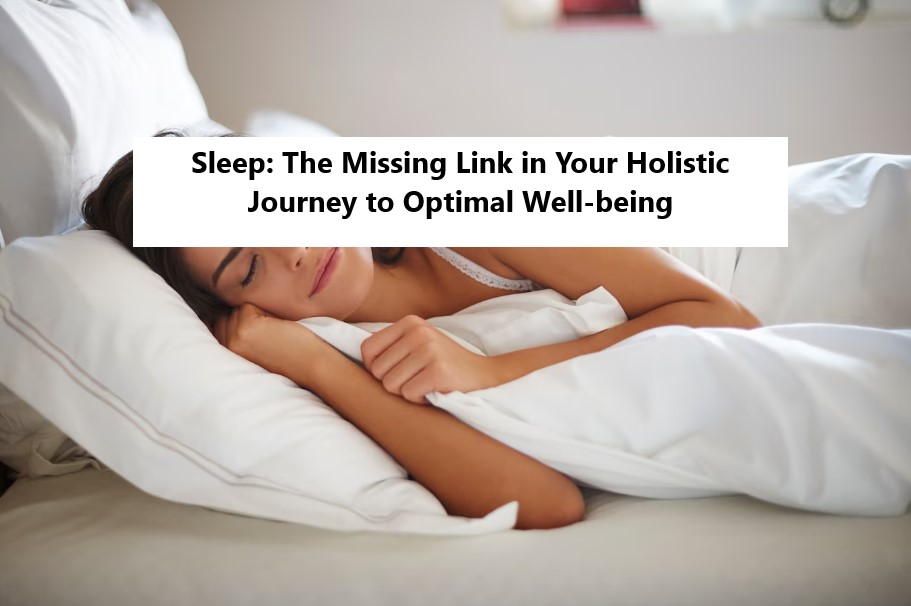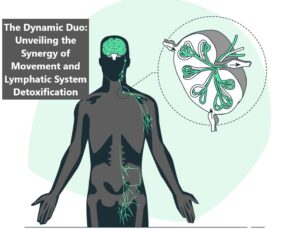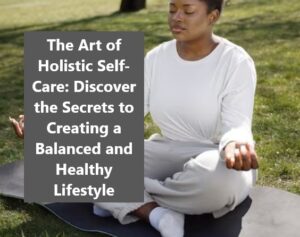In the pursuit of a fulfilling and balanced life, achieving optimal well-being is a common goal for many. Holistic well-being encompasses various aspects of our lives, including physical, mental, emotional, and spiritual dimensions. While we often focus on diet, exercise, and self-care practices, there is one crucial element that frequently goes unnoticed – sleep. Sleep serves as the missing link in our holistic journey to optimal well-being, influencing every aspect of our lives.
Understanding Sleep
Before delving into the significance of sleep, let’s first understand what sleep is. Sleep is a naturally recurring state of rest for the body and mind. It is characterized by reduced sensory activity and a lowered state of consciousness. Our sleep consists of cycles and stages, including rapid eye movement (REM) and non-rapid eye movement (NREM) sleep. Each stage plays a vital role in facilitating different processes necessary for our well-being.
Sleep and Physical Health
Sleep is an essential component of physical health. During sleep, the body undergoes crucial restorative processes, including tissue repair, muscle growth, and hormone regulation. Sufficient sleep also supports a healthy immune system, reducing the risk of infections and diseases. Moreover, studies have linked inadequate sleep to weight management issues, as it affects hunger hormones, metabolism, and cravings.

Sleep and Mental Health
The connection between sleep and mental well-being is undeniable. Sleep deprivation can lead to mood disturbances, increased anxiety levels, and reduced cognitive function. Lack of sleep impairs our ability to concentrate, make decisions, and handle stress effectively. Furthermore, sleep disorders often coexist with mental health conditions such as depression and anxiety, forming a complex interplay between sleep and psychological well-being.
Sleep and Emotional Well-being
Our emotional well-being is intricately tied to the quality of our sleep. Sufficient sleep enhances emotional regulation, helping us manage stress and handle emotions more effectively. On the other hand, inadequate sleep can make us more prone to irritability, mood swings, and emotional instability. Quality sleep is crucial for maintaining emotional resilience and fostering overall mental wellness.
Sleep Hygiene Practices
To optimize sleep quality, practicing good sleep hygiene is essential. Creating a sleep-friendly environment involves ensuring a comfortable and relaxing atmosphere in the bedroom. This includes keeping the room dark, quiet, and at a comfortable temperature. It’s also important to establish a consistent sleep schedule, going to bed and waking up at the same time every day, even on weekends. This helps regulate the body’s internal clock and promotes better sleep. Additionally, managing electronic devices and reducing screen time before bed can greatly improve sleep quality, as the blue light emitted by screens can disrupt our natural sleep-wake cycle.
Natural Remedies for Better Sleep
In addition to sleep hygiene practices, there are natural remedies that can aid in improving sleep quality. Relaxation techniques, such as deep breathing exercises, progressive muscle relaxation, and meditation, can help calm the mind and prepare the body for sleep. Herbal supplements and teas, such as chamomile, lavender, and valerian root, have been used for centuries to promote relaxation and better sleep. Aromatherapy with essential oils like lavender or bergamot can also create a soothing atmosphere conducive to sleep.
Seeking Professional Help for Sleep Issues
If you’re experiencing persistent sleep issues, it’s important to recognize the signs of sleep disorders and seek professional help. Sleep disorders such as insomnia, sleep apnea, restless legs syndrome, and narcolepsy can significantly impact your overall well-being. Consulting a healthcare professional, such as a sleep specialist or a primary care physician, can help diagnose any underlying sleep disorders and provide appropriate treatment options. In some cases, a sleep study may be recommended to gather more information about your sleep patterns and aid in the diagnosis process.
Tips for Improving Sleep Quality
In addition to sleep hygiene practices and seeking professional help, there are several lifestyle changes you can make to improve your sleep quality. Regular exercise and physical activity during the day can help regulate your sleep-wake cycle and promote better sleep at night. However, it’s important to avoid exercising too close to bedtime, as it can stimulate the body and make it difficult to fall asleep. Managing caffeine and alcohol intake is also crucial, as these substances can disrupt sleep patterns and impair sleep quality. It’s advisable to avoid consuming caffeine and alcohol several hours before bedtime.

Practicing relaxation and mindfulness techniques, such as yoga or journaling, can help calm the mind and promote a sense of peace before sleep. Creating a bedtime routine that incorporates these practices can signal to your body that it’s time to wind down and prepare for sleep. Taking a warm bath, listening to calming music, or reading a book can also be beneficial in creating a relaxing atmosphere before bed.
Conclusion
In the journey towards holistic well-being, sleep plays a fundamental role that should not be overlooked. The quality and quantity of our sleep directly impact our physical, mental, and emotional health. By prioritizing sleep and adopting healthy sleep habits, we can unlock the missing link to optimal well-being. So, make sleep a priority, create a sleep-friendly environment, practice relaxation techniques, and seek professional help when needed. Embrace the power of sleep and witness the transformative effects it can have on your holistic well-being.
TruWholeness: None of the information on this website should be regarded as medical advice. Do not change your way of life without first consulting your doctor. Visit my facebook page.






Pingback: Holistic Health Practices: Discover the Power of Mind-Body Healing 2023
Pingback: Transform Your Life with Regular Exercise 2023